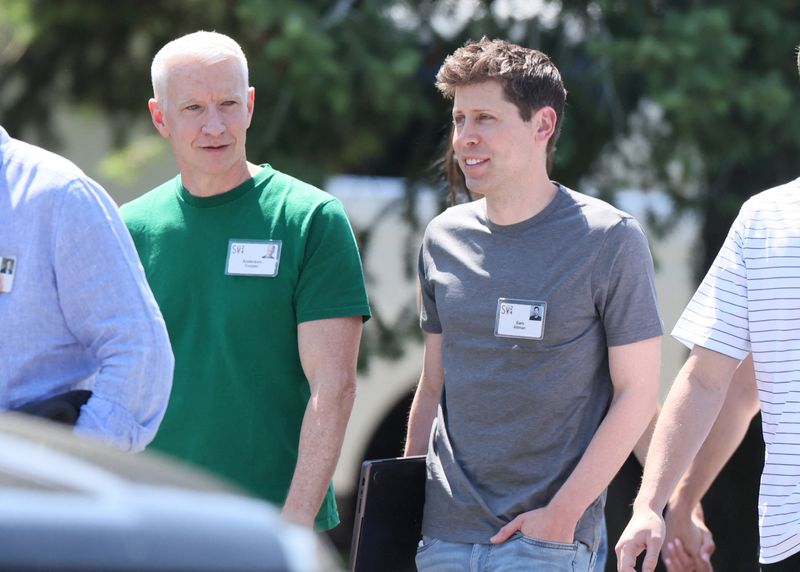By Krystal Hu and Kenrick Cai
(Reuters) – OpenAI’s new round of funding is expected to come in the form of convertible notes, according to sources with direct knowledge of the matter, who said the $150 billion valuation will depend on whether the ChatGPT maker changes its corporate structure can change and abolish a profit ceiling for investors.
The details of the terms of the $6.5 billion funding, which have not previously been reported, reveal the extent to which OpenAI, the world’s most valuable AI startup, comes from a research-based nonprofit, and which structural changes it is prepared to bring about. to attract more and more investment to finance the expensive pursuit of artificial general intelligence (AGI), or AI that surpasses human intelligence.
The lavish funding round has generated strong demand from investors and could close in the next two weeks given OpenAI’s rapid revenue growth, sources said.
Existing investors such as Thrive Capital, Khosla Ventures and Microsoft (NASDAQ:) are expected to participate. New investors, including Nvidia (NASDAQ:) and Apple (NASDAQ:), are also planning to invest. Sequoia Capital is also in talks to return as a returning investor.
If the restructuring is not successful, OpenAI would have to renegotiate the valuation with investors where their shares will be converted, likely at a lower number, sources told Reuters, who requested anonymity to discuss private matters.
Asked about the funding and possible change, OpenAI said in a statement that it remains focused on building AI that benefits everyone while working with the nonprofit board.
“The nonprofit is core to our mission and will continue to exist,” the company spokesperson said.
Removing the profit cap would require approval from OpenAI’s nonprofit board, consisting of CEO Sam Altman, entrepreneur Bret Taylor and seven other members.
The company has also had discussions with lawyers about converting its nonprofit structure into a for-profit company, similar to what its rivals such as Anthropic and xAI use, sources said, confirming media reports.
It is unclear whether such fundamental structural changes can occur in business. Removing the profit cap, which placed a cap on the potential returns of investors in OpenAI’s for-profit subsidiary, would give early investors an even bigger profit.
It could also raise questions about OpenAI’s governance and deviation from its nonprofit mission. OpenAI has said the limit was introduced to “incentivize them to research, develop and deploy AGI in a way that balances commercialism with security and sustainability, rather than focusing on pure profit maximization.”
Founded in 2015 as a nonprofit research project with the goal of building AI for the benefit of humanity, the San Francisco-based AI Lab is currently managed by a nonprofit parent organization.
It has accelerated its commercialization efforts by selling subscription-based services like ChatGPT to consumers and businesses, which now have more than 200 million users.
Existing investors are subject to a cap on their return on their investment, with any additional returns required to be channeled to the nonprofit.

Returns were capped at 100x the investment for investors in OpenAI’s first round of funding. “We expect this multiple to be lower for future rounds,” the company said in a 2019 blog post describing the structure.
OpenAI has used this model to raise more than $10 billion in recent years, most of which came from Microsoft. It was last valued at $80 billion in February in a tender deal that saw the company sell existing shares led by Thrive Capital.


